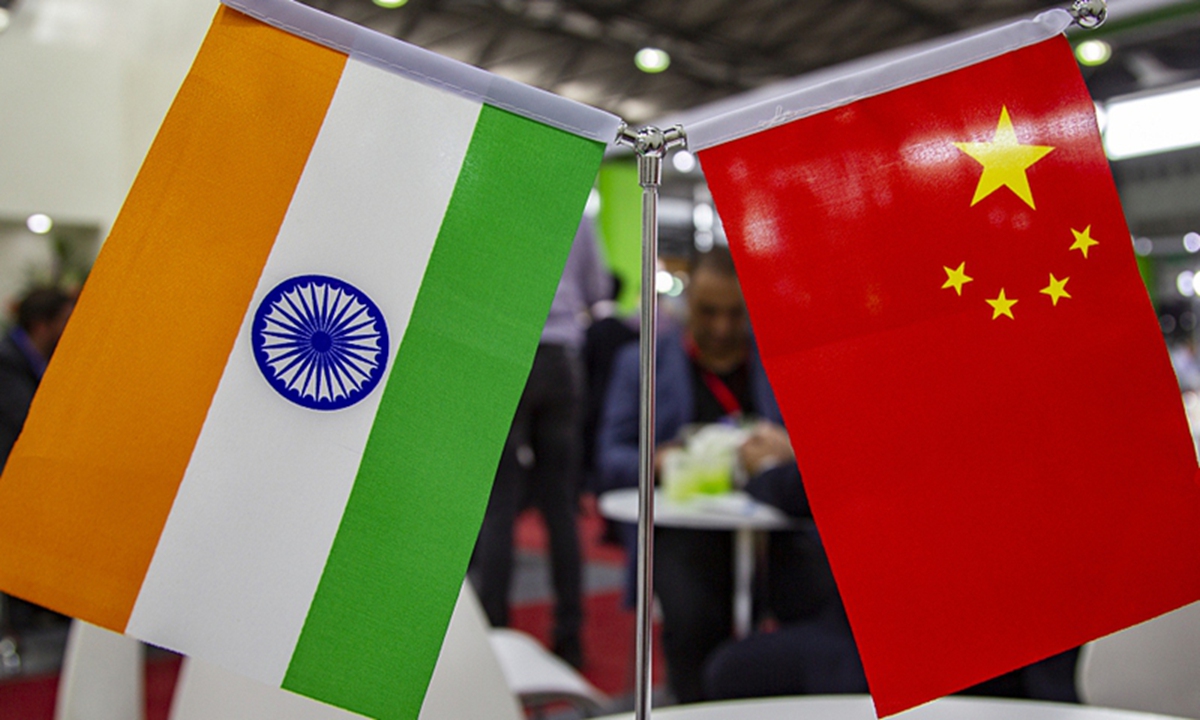
China India File photo:CGTN
If India were to choose an ally, it would be China first and foremost, not the US, as this is in line with the laws of economic development under globalization, and the needs of the two peoples' interests.Of course, this is just hypothetical. Both China and India have pursued a policy of non-alignment. But the fact is the deepening economic and trade ties between India and China have brought the two countries closer, not further apart.
It is time for Indians to seriously consider why, during a pandemic, even amidst repeated domestic boycotts of Made-in-China, trade volume between the two countries has hit a record high of $100 billion by November, according to the latest data from the Chinese General Administration of Customs.
The broader context that cannot be ignored is that Washington, in various ways including QUAD, has been increasing its pull towards India over the past year to bring India into its diplomatic, security, and economic grouping to contain China.
But economic development and market forces would not necessarily move at Washington's disposal; it has its own laws to follow.
While there are those in India who are concerned about the trade deficit, advocating not to rely too much on trade with China, the data speaks for itself. Whatever the political considerations of these people, seeing China as India's enemy should not be an option for India and one that India cannot afford to make. Further increasing cooperation is the right choice.
India has long hoped to reduce its trade deficit with China, but making bilateral trade more balanced cannot be done by curbing Chinese exports to India, which would only hurt the Indian economy. Further boosting China's imports from India is the right way to go, and there is room for coordination between the two sides in this regard, and it should be a joint effort.
Record two-way trade provides the best evidence of the two countries' economic complementarities and the strong resilience of bilateral economic relations. In particular, by importing Chinese products at relatively low prices, India has saved more foreign exchange reserves and improved capital efficiency.
Also, India's large imports of machinery and electronics from China and Chinese investment in the country's smartphone sector have greatly served the needs of the Indian people and boosted Indian exports to third countries.
Cooperation in manufacturing between India and China has great potential, and this cooperation will also create the basis for a more balanced trade between the two countries in the future. Therefore, India needs to unwind some of its inappropriate practices towards Chinese investment.
Like it or not, India is already tightly connected to China and embedded in the international supply chain. The challenge for both sides is not who will replace whom but how to work together to strengthen their positions in the global supply chain.
There is no denying a border dispute exists between India and China, but deepening economic and trade cooperation will facilitate a political solution to the issue, rather than the other way around.
It would only mean greater danger if China-India commerce were not deepened but gradually disconnected. We hope that New Delhi can appreciate the historical significance of the two countries' closer economic and trade relations.



